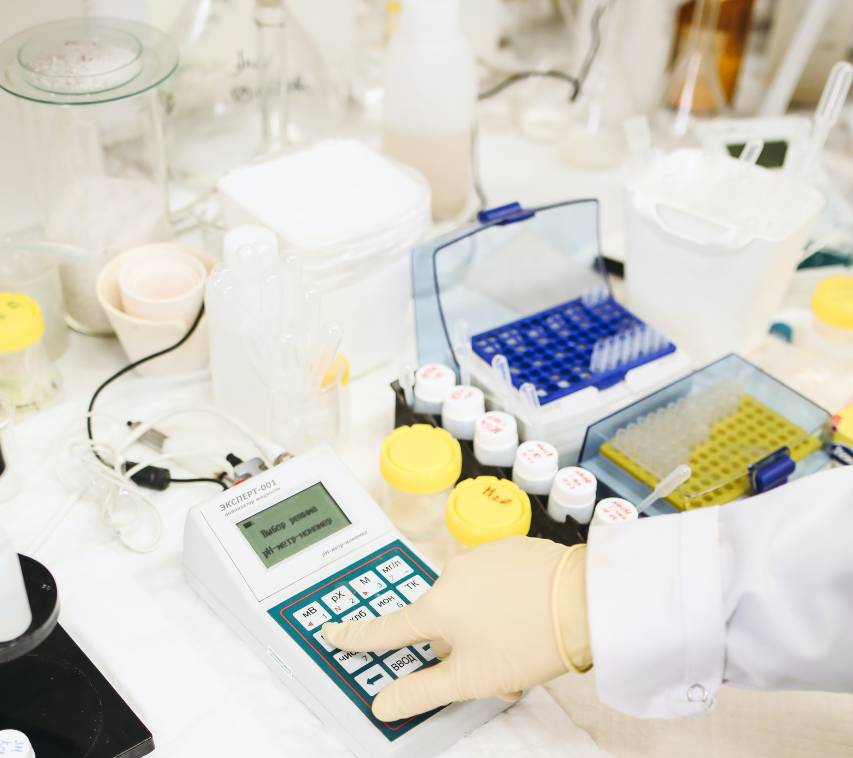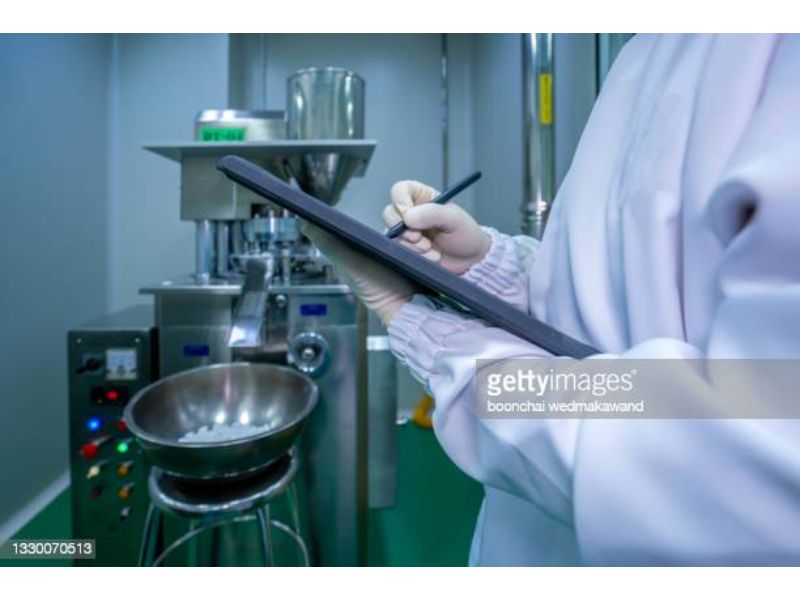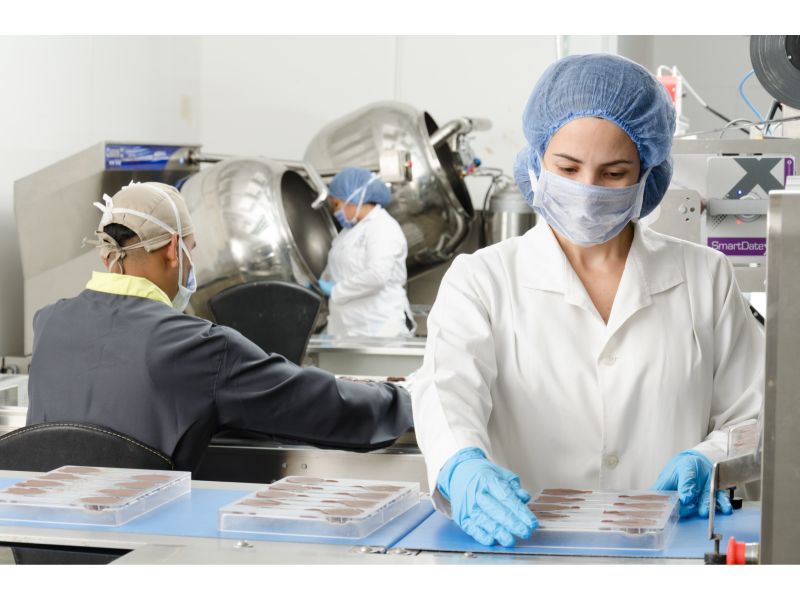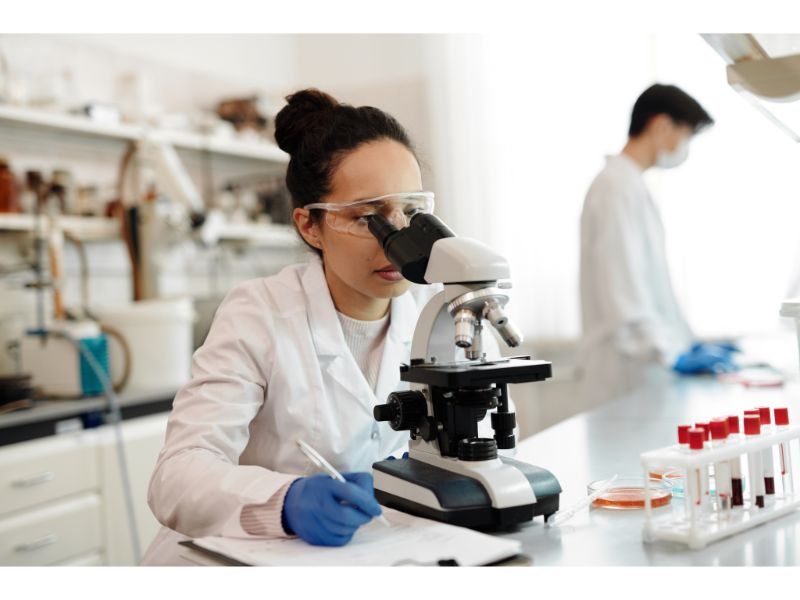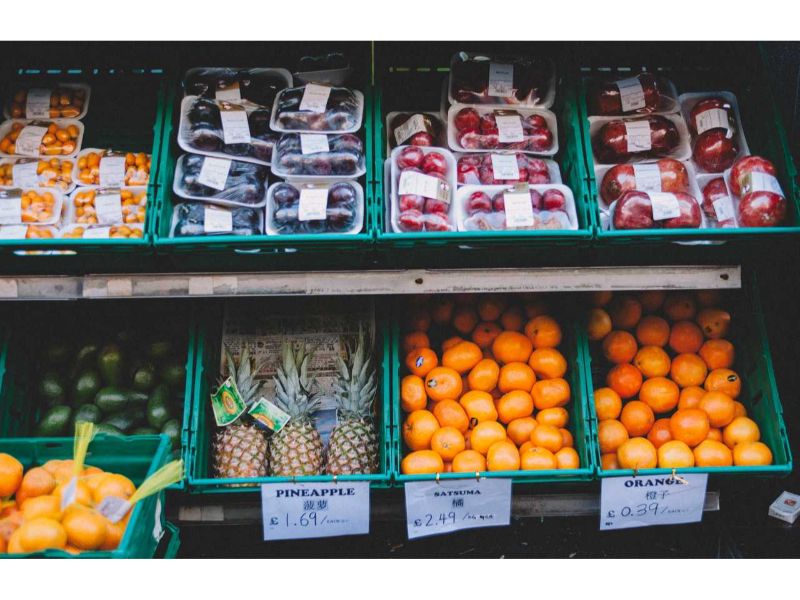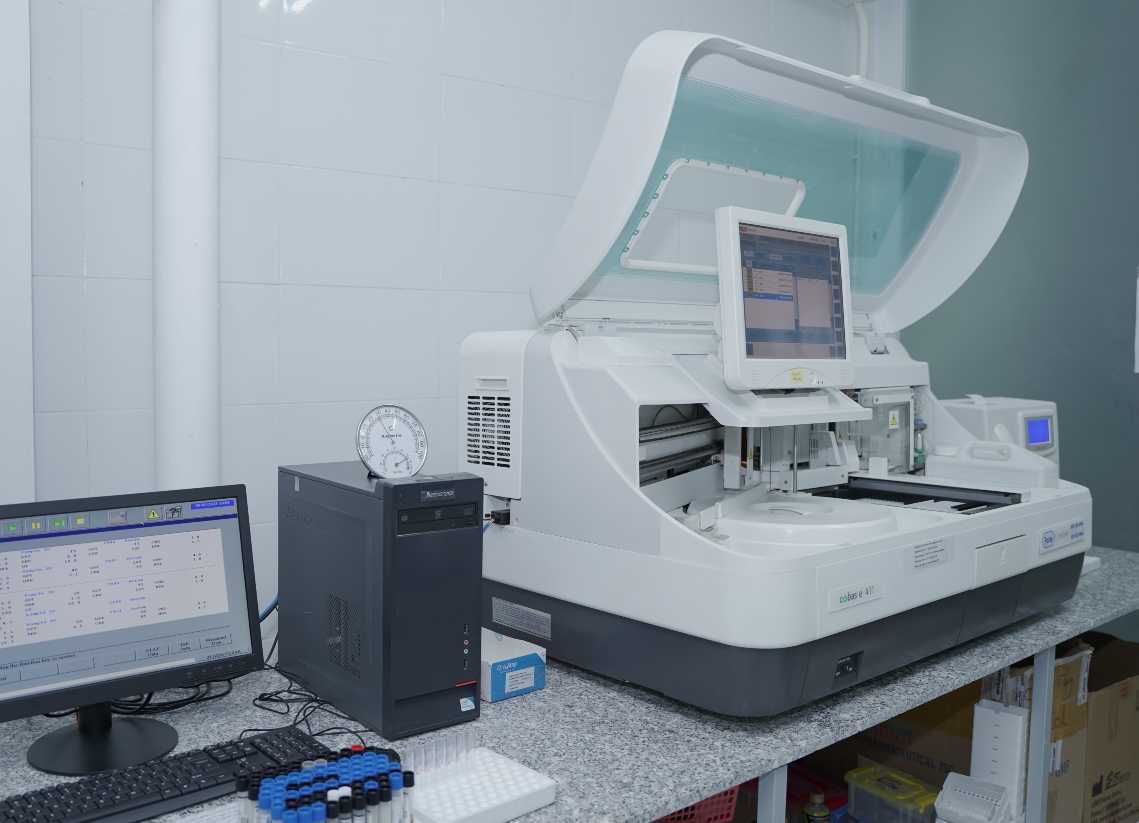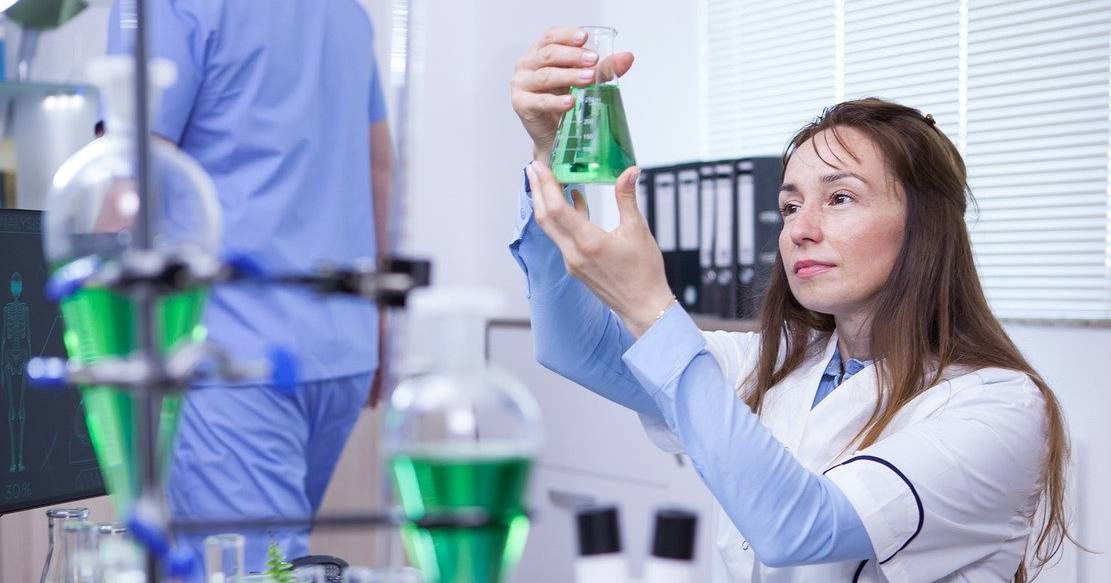Maintaining soil health is not only a cornerstone of sustainable agriculture and environmental stewardship but also an imperative for ensuring the longevity of our ecosystems and the well-being of future generations. As concerns about the profound impact of pollution, unchecked urbanisation, and rapid industrialization on soil quality continue to rise, the role of environmental testing labs in India becomes increasingly indispensable in safeguarding our natural resources.
As India's population surges and urban sprawl expands, our soil faces unprecedented challenges. Industrial effluents, agricultural runoff, and improper waste disposal can introduce contaminants that disrupt the delicate balance of nutrients and microorganisms within the soil. These disturbances not only compromise soil fertility but also pose threats to human health and the environment at large. It is within this complex scenario that environmental testing labs in India step in as the guardians of our soil.
These labs operate at the nexus of science, technology, and environmental conservation. Through rigorous testing methodologies, they meticulously analyze soil samples collected from diverse geographical regions, spanning agricultural lands, urban centres, and industrial zones.This wealth of data is then interpreted to paint a comprehensive picture of soil health.
In this blog, we'll delve into the significance of soil health analysis and how environmental testing labs in India play a pivotal role in assessing and preserving the quality of our land.
Understanding Soil Health Analysis- an Environmental Testing Lab Function
Soil health analysis involves a meticulous and comprehensive evaluation of a myriad of soil parameters, each contributing to the intricate tapestry of its fertility, structure, and overall well-being. This methodical analysis serves as a beacon of insight into the complex world beneath our feet, unraveling a treasure trove of information that has far-reaching implications for sustainable land management and ecological balance.
Within the realm of soil health analysis lies a treasure trove of data that encapsulates the soil's dynamic character. Nutrient levels, a critical determinant of soil productivity, are quantified to ascertain the availability of essential elements such as nitrogen, phosphorus, and potassium. The pH balance of the soil, which impacts nutrient uptake and microbial activity, is scrutinized to ensure an environment conducive to healthy plant growth. Additionally, the organic matter content within the soil—a crucial indicator of its capacity to retain moisture and nutrients—is examined to gauge the potential for robust vegetation.
The Role of Environmental Testing Labs in India
Environmental testing labs in India stand at the forefront of pioneering soil health analysis endeavors, epitomizing a commitment to both scientific excellence and environmental stewardship. These labs serve as bastions of knowledge, harnessing a fusion of advanced techniques and cutting-edge equipment to scrutinize soil samples sourced from a mosaic of diverse geographic regions. It's within their hallowed walls that the fate of our land's vitality is deciphered, as they unveil the intricate narratives concealed within the soil's composition.
Armed with state-of-the-art technology and a roster of skilled scientists, these laboratories orchestrate a symphony of analysis that delves beyond the superficial layers. The methodologies they deploy transcend traditional practices, incorporating spectrometry, chromatography, and molecular biology techniques to unravel the complexities embedded within the soil matrix. These advanced techniques paint a multidimensional portrait of the soil's composition, offering insights into the presence of essential nutrients, organic matter, and potential contaminants.
A defining hallmark of these laboratories is their unrelenting dedication to evaluating soil for a wide spectrum of pollutants. From heavy metals and persistent organic pollutants to pesticides and volatile organic compounds, their comprehensive analyses encompass a gamut of potential threats to soil quality. By scrutinizing soil samples for these contaminants, these labs provide a safeguard against the silent erosion of soil health, preserving not only the land's productivity but also the safety of the produce it yields.
"Want to learn more? Delve into our previous blog on environmental testing for new perspectives!"
Why Environmental Testing Labs Matter
1) Precision and Accuracy: Environmental testing labs employ rigorous methodologies to ensure accurate results. Their analyses provide precise information about nutrient deficiencies, soil acidity, and potential contaminants, enabling targeted remediation strategies.
At the heart of their operations lies the pursuit of accuracy. These labs embrace standardized protocols and meticulous techniques to ensure that every analysis is a true reflection of the soil's composition. The sampling process itself follows stringent guidelines, avoiding contamination and safeguarding the integrity of the collected soil specimens. From sample preparation to the deployment of advanced instrumentation, every step is a testament to their quest for precision
2) Safeguarding Ecosystems: With growing urbanization and industrialization, soil pollution has emerged as a significant concern. Environmental testing labs play a vital role in identifying pollutants that can harm both terrestrial and aquatic ecosystems, allowing for prompt interventions.
In the face of this mounting challenge, environmental testing labs assume a role of profound significance. They act as sentinels, attuned to the subtle shifts occurring within the soil matrix, and equipped with an arsenal of scientific tools to detect the presence of pollutants that threaten its integrity. Their role extends beyond identifying mere contaminants; it encompasses understanding the potential pathways through which these pollutants infiltrate ecosystems and influence human health.
3) Supporting Agriculture: Soil health directly influences agricultural productivity. By assessing nutrient levels and identifying imbalances, testing labs assist farmers in making optimal fertilization decisions, reducing costs, and improving crop yields.
As we navigate a global population that continues to swell, ensuring the health of our soil is not just an option—it's an imperative. Within this delicate balance, environmental testing labs take center stage, wielding their expertise to facilitate a symbiotic relationship between soil and harvest.
4) Policy Formulation: Reliable data from environmental testing labs inform policymakers about soil quality across regions. This data guides the creation of effective regulations to prevent further soil degradation and pollution.
These insights are not just data points; they are the keystones that guide policymakers toward the creation of regulations that strike a harmonious balance between development and conservation. It's within this interplay of science and policy that the true impact of environmental testing labs unfolds.
5) Long-Term Sustainability: Sustainable land use relies on maintaining healthy soils. Environmental testing labs contribute to long-term sustainability by providing insights into the effects of land management practices on soil health.
At its core lies the recognition that the land we tread upon isn't an infinite resource but a delicate ecosystem that must be nurtured and protected. Central to this philosophy is the health of the soil—more than just dirt, it's a living, breathing entity that sustains life in all its forms. In this intricate web of sustainability, environmental testing labs emerge as guardians of the soil's vitality and longevity.
The effects of land management practices on soil health are multifaceted and far-reaching. From intensive agriculture to urban expansion, every decision we make about land use has consequences that ripple through the soil. Recognizing this, environmental testing labs embark on a journey to decipher the intricate dance between human activities and soil health. Their mission isn't just to gather data; it's to provide a roadmap that ensures our actions today don't compromise the land's ability to sustain us tomorrow.
"Check out SMS LAB'S expert environmental testing solutions for your soil health needs!"
The Process of Soil Health Analysis
Environmental testing labs follow a systematic approach to soil health analysis:
1) Sample Collection: Soil samples are collected from various depths and locations, ensuring representativeness. Environmental testing labs aim to ensure that their sampling grid is representative of the larger area under scrutiny.
This may involve selecting points at regular intervals or using advanced statistical techniques to guide sampling efforts. The result is a mosaic of samples that reflect the diversity of the landscape, accounting for both variability and uniformity.
2) Laboratory Testing: Samples undergo comprehensive testing for nutrient levels, pH, organic matter, and contaminants. As these samples arrive at environmental testing labs, they undergo a symphony of analyses that encapsulate the essence of soil health, painting a vivid picture of its composition, history, and potential.
The array of parameters analyzed within these laboratories forms a constellation of insights that guide decisions about land management, conservation, and sustainability.
3) Data Interpretation: Test results are interpreted, and soil health indicators are assessed. a process where numbers are imbued with meaning, and patterns emerge to tell tales of soil health, fertility, and resilience.
The data generated from comprehensive testing is a treasure trove of information, each data point akin to a puzzle piece in the grand mosaic of soil health. The art of interpretation is multifaceted, drawing from the expertise of scientists who wield not just scientific acumen but also an understanding of the intricate interplay between soil parameters.
4) Recommendations: Based on the analysis, labs provide recommendations for soil management, amendment, and remediation.
These analysed data offer tailor-made strategies that harness the potential of the soil to its fullest. If nutrient deficiencies are identified, these labs map out nutrient supplementation regimes that optimize plant growth. Should pH imbalances arise, they prescribe soil amendments that create an environment where nutrients are accessible and microbial communities thrive.
Conclusion
In India, environmental testing labs stand as guardians of soil health, providing invaluable insights for sustainable land management. By assessing soil quality, identifying contaminants, and offering remediation strategies, these labs contribute to a healthier environment, increased agricultural productivity, and long-term ecological sustainability. As we navigate the challenges of modernization, the role of environmental testing labs in India remains pivotal in ensuring a greener and more prosperous future.
SMSLA is a leading food and material testing laboratory in India that provides comprehensive, prompt and reliable testing services for food allergens, additives, contaminants, environmental contaminants and more. With our cutting-edge techniques and cutting-edge facilities, we guarantee precise and dependable outcomes, empowering both individuals and businesses to navigate the labyrinth of food safety and excellence.
By spotlighting SMSLA as a leading food testing lab in India, we take a stride towards curbing food allergies, sensitivities, and bolstering public well-being in the most delectable way possible.


